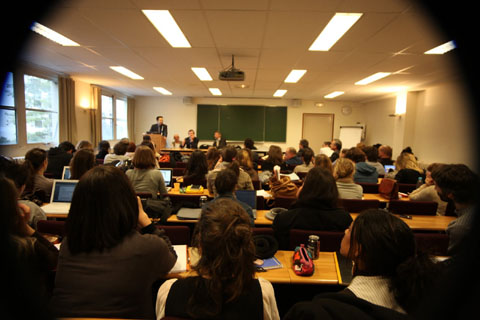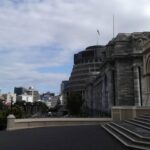 This weekend was spent in recovery mode after getting some weird stomach bug before Anzac Day. Without getting too gross, let’s say it took a lot out of me. That’s right: I was energetically drained.
This weekend was spent in recovery mode after getting some weird stomach bug before Anzac Day. Without getting too gross, let’s say it took a lot out of me. That’s right: I was energetically drained.
But it’s not to say that the campaign has stopped or slowed. Things seem to be proceeding at a good pace—sometimes so well that I have to admit I have less time to blog.
I met with both a Mr Andrew Jackson and a Mr Calhoun in the last two weeks, which I am sure our American readers will be getting a chuckle over. While the Andrew Jackson I met is British-born and not related to the American president of the $20 banknote, Brian Calhoun of Silverstripe is directly descended from the seventh vice-president.
Both gentlemen shared the same visions as I did. Andrew, who was introduced to me via my fellow Medinge director Patrick Harris, looks at the Wellington region over the next 10–20 years in his job with the Ministry of Economic Development. While I stated that I did not believe in a super-city for Wellington in 2010—we are governable, after all—I had to admit that there would come a time where the capital would have to compete for resources from central government as a region. And that region might look very different in the 2020s with a second international airport and a light rail service. If elected mayor, it’s not going to be something that will be built between 2010 and 2013, but I’d sure need to be aware of long-term developments for the region. (It also highlights the need to grow jobs under the creative cluster plans, so we can begin talking options.)
On that note, it would be prudent to recommence the regional mayoral meetings in a slimmer form. Right now, mayors from all over the Wellington region come with entourages, ensuring nothing gets done. Let’s take that back to meeting with mayors and regional MPs without all the red tape and get some high-level agreements made after October 2010.
Meanwhile, Brian presides over one of the most successful software companies in the land—and I like Silverstripe’s current mantra, ‘Be more human’. It links to my own ideas that humans are in charge of technology and not vice versa. And Silverstripe, under his leadership, has done remarkably with annual growth rates of 63, 70 and 57 per cent.
His belief is that Wellington businesses can grow if they have the right advice and adopt a leadership posture to what they do. It’s a good cultural argument: let the brand be well defined, and live the right attitude within the organization (these are not Brian’s words, but what I took from what he said). I remarked that that was largely how I got my own businesses to where they were.
But here’s something significant: Brian, as I, believes that Wellington can be one of the world’s leading cities. We can lead in terms of web, tech and software development, for starters, being the sort of place that attracts both talent and envy. We’ve both been around the world, we’re aware of what ingredients need to be in place to make this happen, and we’re certain on the steps we need to take to make some of Wellington’s businesses world-class champions.
I’d rather have free wifi in the central city and a vibrant creative cluster than another sculpture (as much as I like the ones we have) or another stadium suffering from a NZ$20 million cost overrun. And I know we can build these businesses from the ground-up and keep them Kiwi-owned—rather than asset-strip and have foreigners snatch them up, which still seems to dominate the thinking of central government.
Speaking of which, I see that a bill amending the Local Government Act 2002 has been tabled. And that bill says that if a private corporation wants to control our water, it can do so for 35 years. That company set up to sell our water back to us no longer needs to be majority council-owned.
This is madness. Not only have we owned our water from day one, it is anathema to my thinking that some foreign corporation raking in US$50 billion per annum could control it. These corporations exist, and you can bet they are eyeing New Zealand up lustfully in the hope that the law is changed.
Better to have water stay in public hands and have all of us contribute to proper conservation programmes, I say. But, say the privateers, surely we can charge for water? ‘What? The poor can’t afford it? It’s not as though they need to wash every day, is it?’
The ghosts of Slater Walker and their ilk still walk the hallways at some political parties’ HQs. And they still think they are in charge.
Incidentally, I seem to be getting decent (and by ‘decent’ I mean ‘fair and balanced’) air time on the radio airwaves. So far I’ve done Newstalk ZB a couple of times, as well as their competition over at Radio Live. Laura Daly at Access Radio did a wonderful interview with me earlier in April (I will be back on that station with my opponent Celia Wade-Brown in Espace Français on May 15 in my first political interview in French). Radio New Zealand National, meanwhile, interviewed me a few times during the whole Wellywood saga, but I am glad that I had a more personal one-on-one with Sonia Yee during her Asian Report last week. Here’s the link to the programme for those who might want a slightly less political broadcast (the MP3 is here).





